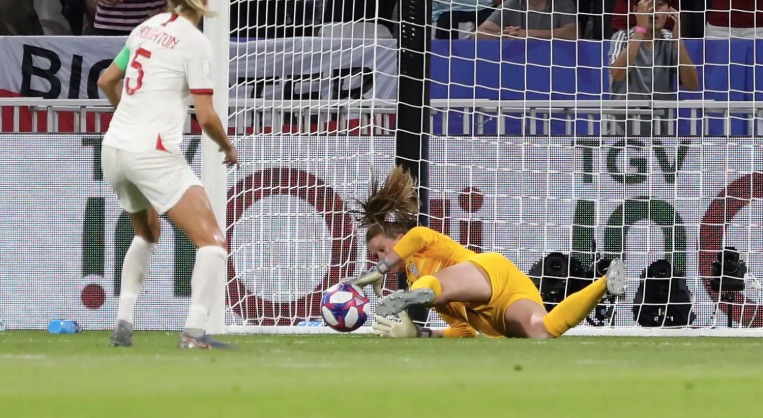Yesterday the U.S. national team sealed their 2-1 win against England with a save in the 84th minute of the women’s World Cup semifinal game when goalkeeper Alyssa Naeher blocked a penalty kick.
To see the save, do go to 1:32-1:37 through the YouTube link below:
For the single penalty shot, one player and one goalkeeper are 12 yards apart. A one-on-one face off, the kicker tries to get the ball into the net while the goalkeeper wants to block it.
It’s a tough shot to block. And that is where economics enters the game.
Game Theory
Sometimes you have to know what your opponent will do in order to decide how to act. The problem though is that it’s all a prediction. You have to figure out your response before you know what to respond to. What you do can be explained by game theory.
Prison
A classic example of game theory is called the prisoner’s dilemma. When two partners in crime are arrested, one knows that if he confesses and his partner does not, then he will go free. But if both keep quiet, they both go to jail for one year. Because they are questioned separately, no one knows what the other has said. But the results depend on how much the other person admitted.
The dilemma: Keep quiet or confess?
And that is the essence of game theory. Your future behavior is based on what you expect your opponent– an individual, a firm or a country–will do.
Our Bottom Line: World Cup Game Theory
So yes, like the prisoner’s dilemma, with a penalty kick, each player will benefit by accurately predicting her opponent’s strategy. At the same moment that the goalkeeper plans a lunge to the left, the right, or decides to remain in the middle, the kicker knows if she will aim for the left, the right, or in between. With no time to react to the other’s decision, they each need to figure it out beforehand. Called a zero sum game, there is one winner and one loser. At stake are huge amounts of money, of ego, and yesterday, probably the semifinal match.
According to economists who have researched game theory, the best penalty kick strategy appears to be no strategy (a “mixed” strategy that is random). The reason? If a kicker has a strong side, the goalie could expect the ball to go there. But on the other hand, the kicker would know that and use her weaker side…Or not.
As for Alyssa Naeher’s save, happily, she solved the prisoner’s dilemma.
My sources and more: For the details on the U.S.-England match, this NY Times article is one of many possibilities. Meanwhile, in 2014, Quartz focused on soccer game theory. But if you want some thorough analysis, do look at this 2002 paper and this one from economists at the University of Chicago. Finally, The Economist has a good discussion of how game theory works while this obituary introduces you to its originator, John Nash and A Beautiful Mind.
Sections of today’s post were published in a past econlife. Our featured image shows the Naeher save.







